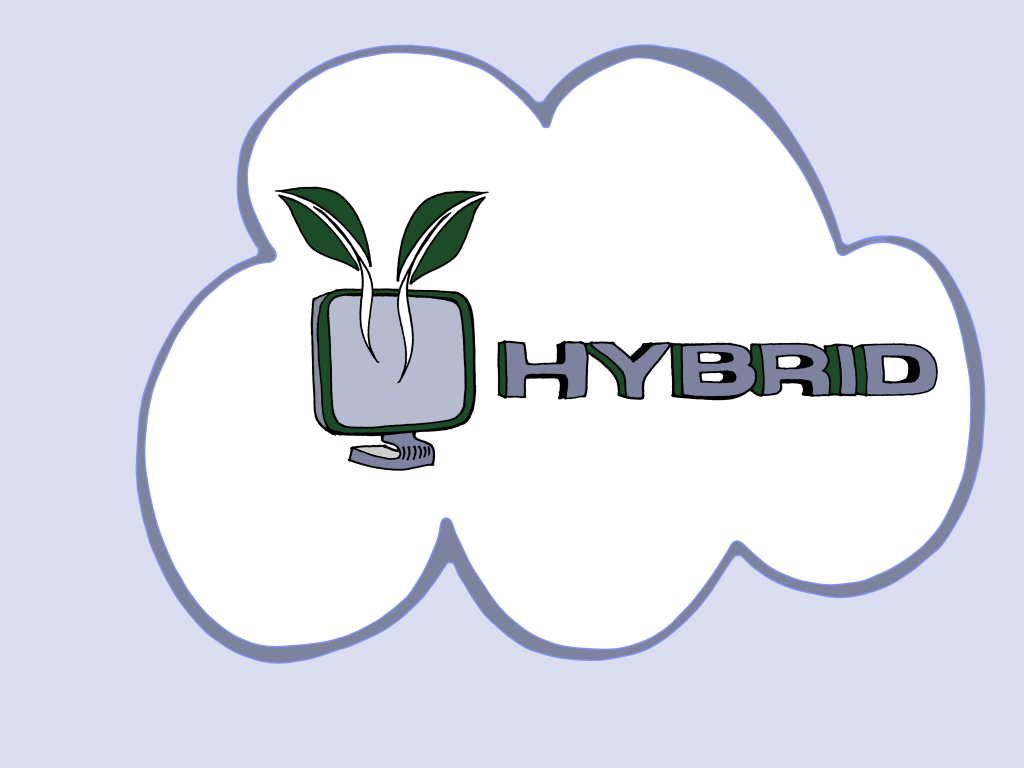A hybrid cloud environment is a mix of public third-party cloud services and on-premises private datacenters. Private clouds are appropriate to manage confidential data and public cloud platforms are superior for most use cases due to their scale-out elasticity, cheaper costs, and modern tooling. A hybrid cloud merges the benefits of public and private clouds, offering enterprises with a complete cloud solution.
Many large enterprises still house most of their data and applications in on-premises datacenters. They are well aware of the benefits of the cloud but are unable to give up on their decades of investment in on-premises hardware. Some even have regulatory obligations that require them to house their data on servers they control fully. Rather than force these large enterprises to migrate right away, the hybrid cloud approach gives them the flexibility to migrate at their own pace.
Hybrid cloud enables flexibility in scaling which is important considering the fluctuating market demands. With the hybrid cloud, you can either scale up to the public cloud or scale down to the private cloud.
Hybrid cloud computing is propelling businesses to the next level. Its ability to move workloads across clouds have caught the attention of the key players in the market. Most tech leaders have adopted the hybrid approach. Even the majority of companies that have yet to move to the hybrid cloud express openness toward the concept. Here is a list of some interesting collaborations made by the tech leaders to embrace the hybrid cloud:
1. VMware’s acquisition of Heptio

VMware announced the acquisition at their Europe conference. Pivotal Container Service (PKS) is an enterprise-grade Kubernetes solution provided by VMware. The offering enables organizations to run cloud-agnostic apps. PKS helps operators to manage Kubernetes clusters using Pivotal Ops manager and BOSH. VMware has over 75,000 partners and 500,000 customers worldwide.
Heptio is focused on creating products that would make multicloud management easier. The acquisition of Heptio will reinforce PKS as a platform for running containers and help VMware establish Kubernetes as the de facto infrastructure across its cloud offerings. Heptio was founded by Joe Beda and Craig McLuckie, who were among the team of three that created Kubernetes at Google. Within a short period, the company managed to raise a whopping $33.5 million in its funding rounds. That’s a lot of money for an early-stage startup. The investors include Accel Ventures, Madrona Venture Group, and Lightspeed Ventures.
Out of all the 33 acquisitions VMware has made so far, Heptio is the first one that can boost VMware’s position in Kubernetes. The co-founders will continue to work with their teams even after the acquisition. In that sense, talent is one of the key motivations for this deal. Google has the lion’s share of original Kubernetes developers working on Google Cloud, Azure has Brendan Burns, one of the co-creators of Kubernetes, and VMware could use the pedigree of folks like Beda and McLuckie as they contend with bigger competition. The deal will probably close in Q4 2019. The financial details of the deal have not been revealed by the companies.
2. IBM’s acquisition of Red Hat

According to IBM, 80 percent of business workloads are held back from moving to the cloud due to the proprietary nature of the cloud market. So building open cloud solutions will make a big difference in the world of business by helping enterprises unlock the full power of the cloud. With this in mind, Big Blue acquired Red Hat, the leading open source software maker, for $190 per share, and took big a leap into the hybrid cloud race. The total value of acquisition amounts to $34 billion. This is one of the biggest tech acquisitions ever made.
The acquisition will be mutually beneficial because Red Hat will give IBM a stronger footing in open source and IBM will expose Red Hat to a bigger audience and also provide a greater scale of resources. The companies have already collaborated in Q2 2018 to bring together the power of IBM Cloud Private and Red Hat Openshift Container Platform. The success of this collaboration was like a good test drive and it encouraged both the companies to collaborate further. After the acquisition, Red Hat will become part of IBM’s hybrid cloud team but will continue to work on open source software.
Though the boards of directors of both the companies have agreed on the deal, it is yet to be approved by regulators and shareholders of Red Hat. If approved, the deal will complete by H2 2019. IBM intends to allow Red Hat to continue partnering with leading cloud providers like Microsoft Azure, AWS, Alibaba, and Google Cloud to foster an open ecosystem. According to IBM CEO Ginni Rometty, with the acquisition IBM will offer the leading open cloud solution for enterprises and will become the No. 1 hybrid cloud provider.
3. Red Hat’s acquisition of NooBaa
Besides working to be acquired by IBM, Red Hat is also busy making its own acquisitions. The company is constantly strengthening its ability to meet the needs of developers in the multicloud world. In November, the company acquired NooBaa, a hybrid cloud data management service provider.
NooBaa is a Tel Aviv-based early-stage startup that is helping enterprises access various data providers through a single API. The startup was founded in 2013 and was funded by companies that include Jerusalem Venture Partners, OurCrowd, and Akamai Capital. Nooba puts a virtual layer over the public and private cloud storage systems, giving developers a common interface and advanced data services for cloud-native applications.
NooBaa’s ability to bring various data silos together makes it a good fit in Red Hat’s Portfolio. Unlike Red Hat’s technologies, Nooba is not open source. But after the acquisition, Red Hat will work to open source NooBaa’s tech soon. But the exact timeline is not disclosed yet. Also, the companies seem to maintain confidentiality about the financial details of the acquisition.
4. Cisco and AWS collaboration
Cisco wants in on the hybrid cloud action by partnering with Amazon Web Services (AWS). This solution enables customers to run Kubernetes on-premises. This way, customers can focus on building and using applications without having to worry about where they run. By accelerating development, the solution would lead to a reduction in the time-to-support. Now, customers don’t have to choose between building applications on-premises, and in the cloud and also get the best of both the environments.
This collaboration is similar to the one Cisco has with the Google Cloud Platform. Cisco also has a hybrid cloud partnership with Microsoft Azure where Cisco offers a hardware solution for the software stack called the Azure Stack.

The solution has three subscriptions plans: one-year, three-year, and five-year. Enterprises that use the Cisco container platform will soon be able to launch Kubernetes clusters on-premises and on AWS as well.
Why hybrid cloud is so hot
Hybrid cloud is the ideal choice for enterprises that are trying to keep up with the accelerating growth of data. Many enterprises that are moving from private cloud to public cloud will gradually move into the hybrid cloud. Surveys indicate a positive vibe about the hybrid IT environment. But, the knowledge gap in the industry is a serious problem. According to a survey by Hybrid Hive, over 67 percent of the respondents confessed their lack of knowledge about the hybrid cloud. But bridging this knowledge gap wouldn’t be a big issue considering the advanced support and learning platforms today. So, it wouldn’t be an exaggeration to say that the hybrid cloud is the future of cloud computing. According to a study by UBS Evidence Lab, more than 60 percent of CIOs agree that hybrid cloud solutions make the most sense moving forward.



